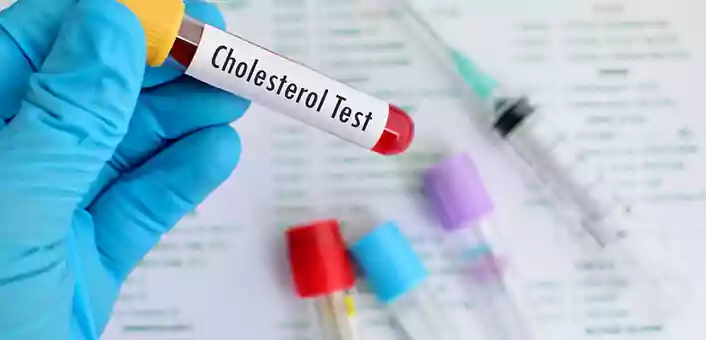PCOS test is based on the Rotterdam criteria for diagnosing PCOS.

Heart
There is an old belief that cholesterol causes heart attacks. What if we told you that belief is a complete myth? To paraphrase the words of Mark Twain, “What gets us into trouble is not what we don’t know. It’s what we know for sure that just ain’t so.” Find out why cholesterol is not bad for your health.
Cholesterol is required by the body and is present in every cell. It helps in the production of cell membranes, hormones, neurological activities, bile acids, and even Vitamin D. In short, cholesterol is very important for your body.
Most people believe that LDL (low-density lipo-protein) is the bad cholesterol while HDL (high-density lipo-protein) is the good cholesterol. However, these two are lipo-proteins, which are just carriers, and not cholesterol themselves. Cholesterol, just like fat, isn’t water soluble. It needs carriers to move it around the body. LDL carries the cholesterol from the liver to the bloodstream (“fresh” cholesterol) to all parts of the body. And HDL transports the cholesterol from the bloodstream to the liver (“recycled” cholesterol). So two reiterate, LDL and HDL are simply form of proteins.
In a Japanese study, it was concluded that a low level of cholesterol in the blood was related to high mortality (not considering those deaths caused due to liver disorders). On the contrary, it was observed that high cholesterol was not a risk factor for mortality.
In a study funded by the Western Vascular Institute, various cohort studies conducted on cholesterol and heart diseases were reviewed. The review concluded that higher levels of LDL did not increase the risk of heart disease. While the publication mentions that more research is needed into this, it does challenge the popular notion that higher LDL causes more heart diseases.
Another research mentions that recent evidence from human studies has documented the lack of effect of dietary cholesterol on coronary heart disease risk. This means the restrictions on dietary cholesterol need to be revisited.
A study in Korea, suggests caution in prescribing statins (lipid inhibitory drugs) for primary prevention of heart diseases in low-risk adults.
Heart disease is the leading cause of death in the USA. However, over 75% of people suffering heart attacks have normal cholesterol levels.
Around 25% of our body’s cholesterol is found in the brain. In fact, cholesterol is one of the raw materials in the production of hormones like testosterone, progesterone, estrogen. It even acts as an antioxidant.
Research conducted on older individuals suggested that memory was better in people with higher LDL cholesterol levels.
A study also showed that higher levels of cholesterol suggested a reduced risk of dementia in late life.
To conclude, there’s plenty of evidence to suggest that cholesterol is not bad for the body. We, at Sepalika, believe that lowering your cholesterol levels is harmful for your body. Cholesterol is there to do a job. Lowering cholesterol with drugs does not reduce your risk of a heart attack. In fact, cholesterol-lowering medicines come with their own share of side effects.
1. Nago N, Ishikawa S, Goto T, Kayaba K. Low cholesterol is associated with mortality from stroke, heart disease, and cancer: the Jichi Medical School Cohort Study. J Epidemiol. 2011;21(1):67-74. Epub 2010 Dec 11. PubMed PMID: 21160131; PubMed Central PMCID: PMC3899519.
2. Ravnskov U, Diamond DM, Hama R, et al Lack of an association or an inverse association between low-density-lipoprotein cholesterol and mortality in the elderly: a systematic review BMJ Open 2016;6:e010401. doi: 10.1136/bmjopen-2015-010401
3. Fernandez ML, Calle M. Revisiting dietary cholesterol recommendations: does evidence support a limit of 300 mg/d? Curr Atheroscler Rep. 2010 Nov;12(6):377-83. doi: 10.1007/s11883-010-0130-7. Review. PubMed PMID: 20683785.
4. Bae, J.-M., Yang, Y.-J., Li, Z.-M., & Ahn, Y.-O. (2012). Low Cholesterol is Associated with Mortality from Cardiovascular Diseases: A Dynamic Cohort Study in Korean Adults. Journal of Korean Medical Science, 27(1), 58–63. https://doi.org/10.3346/jkms.2012.27.1.58: